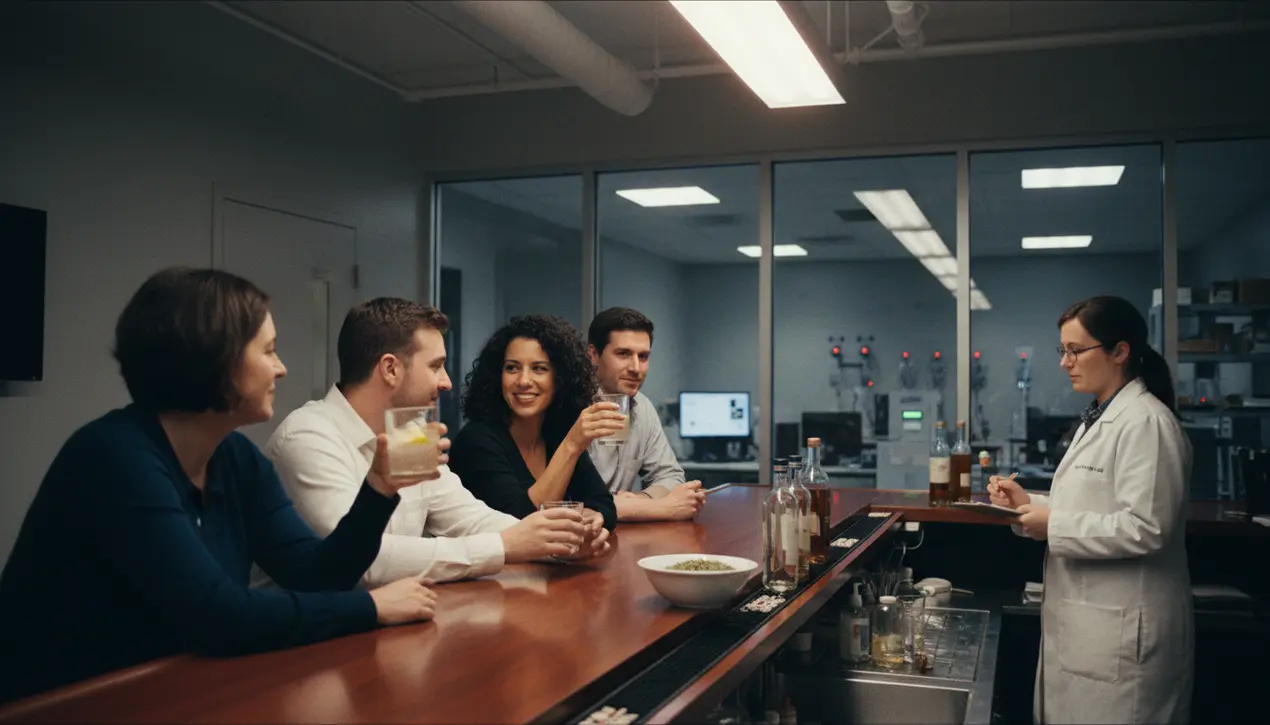
Scienceneuroscience
Study Finds Cannabis Use Reduces Alcohol Consumption
LA
Laura Bennett
2 days ago7 min read3 comments
In a quiet corner of a meticulously constructed laboratory at Brown University, a scene unfolded that felt less like clinical research and more like a Friday night social experiment. Researchers had built a fully stocked bar, complete with the familiar clink of glass and the ambient hum of conversation, but with one crucial difference: every element was controlled, every participant observed.The central question was disarmingly simple yet profound—does cannabis use actually reduce alcohol consumption? The answer, emerging from this unconventional setup, appears to be a tentative 'yes,' a finding that could ripple through public health policies and our very understanding of substance interaction. The study’s methodology was uniquely immersive.Instead of relying on self-reported data, which can be notoriously unreliable, scientists created a realistic bar environment and provided participants with their favorite alcoholic beverages. Then, they introduced cannabis.Observing the subsequent behavior, the researchers noted a tangible decrease in the amount of alcohol consumed when participants were under the influence of cannabis. This wasn't about mere substitution; it was about a fundamental shift in consumption patterns, suggesting a complex interplay between the two substances that goes beyond simple vice-swapping.To understand the significance, one must look at the broader landscape of substance use. For decades, alcohol has been the dominant legal intoxicant in Western societies, its harms well-documented from liver disease to social disruption.The gradual legalization of cannabis in various jurisdictions has presented a fascinating natural experiment. Are these substances competitors in a limited market for recreational alteration, or do they complement each other, leading to potentially greater harms? This study leans toward the former, hinting that increased access to cannabis might naturally curb alcohol use, a prospect that would have major implications for industries built around booze and for government tax revenues.I recall speaking with a man named David last year, a former marketing executive who found his life unraveling due to a reliance on evening scotch. For him, the introduction of a legal cannabis edible in the evening didn't just replace a drink; it rewired his ritual.'The wine was about numbing the day's stress,' he explained, his tone reflective. 'The cannabis was different.It made me want to sit with my thoughts, maybe listen to music, not just drain a bottle to silence them. ' His personal anecdote echoes the study's quantitative findings, pointing to a potential for cannabis to serve as a less harmful alternative for some individuals, a concept known as harm reduction that is often discussed but rarely demonstrated so tangibly.Of course, this is not a universal prescription. The researchers themselves caution that the relationship is nuanced.Factors such as the strain of cannabis, the individual's tolerance, and their psychological profile all play a role. Some participants might simply be adding one high on top of another, a practice with its own risks.Furthermore, the long-term societal effects are unknown. Could a shift from alcohol to cannabis lead to a net positive for public health, given the different risk profiles of the two substances? Experts in addiction medicine are watching these developments closely, noting that while cannabis is not without its own dangers, it lacks the profound physical addiction and organ toxicity associated with heavy alcohol use.The conversation, therefore, moves beyond a simple 'good' or 'bad' binary. It pushes us to consider a more sophisticated model of drug policy, one based on relative harm and individual choice.The fake bar at Brown University has provided a crucial, real-world data point. It suggests that for a significant number of people, the path to intoxication isn't a single, fixed road but a network of choices, and that altering the available routes can change the entire journey. This isn't just about getting high or getting drunk; it's about understanding the complex motivations behind why we seek altered states and how we can navigate them with the least amount of damage to ourselves and our communities.
#cannabis
#alcohol consumption
#research study
#featured
#Brown University
#public health
#substance interaction
Stay Informed. Act Smarter.
Get weekly highlights, major headlines, and expert insights — then put your knowledge to work in our live prediction markets.
Related News
Comments
Loading comments...
© 2025 Outpoll Service LTD. All rights reserved.